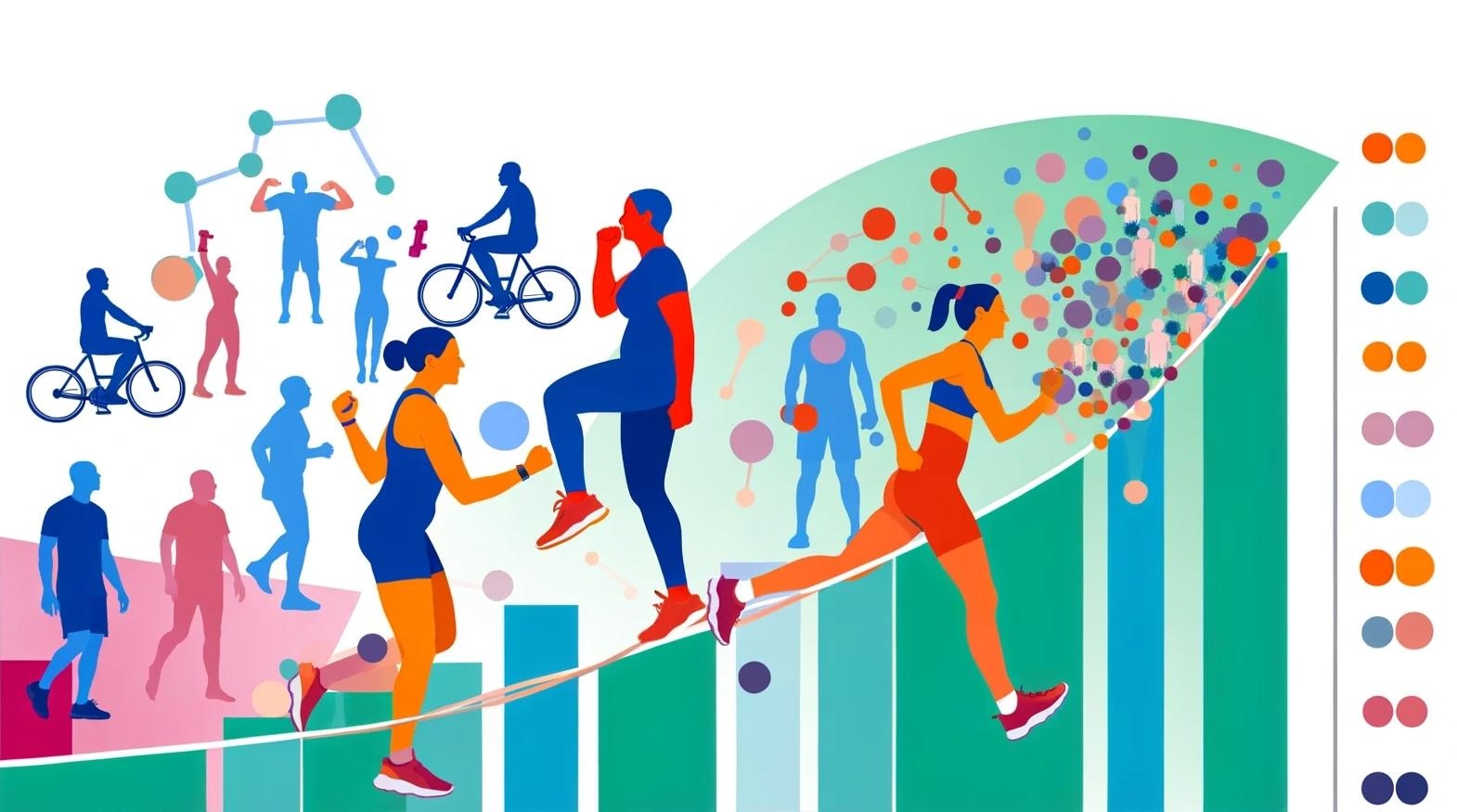In a recent study published in the journal Nature Mental Health, a group of researchers investigated how physical activity serves as a compensatory mechanism for the adverse effects of social isolation on mental health using electronic diaries, accelerometry, and neuroimaging.
 Study: Real-life behavioral and neural circuit markers of physical activity as a compensatory mechanism for social isolation
Study: Real-life behavioral and neural circuit markers of physical activity as a compensatory mechanism for social isolation
Background
Social isolation and loneliness are as lethal as significant health risks like obesity, heavy drinking, or smoking 15 cigarettes a day, significantly impairing emotional well-being, damaging emotion-regulating brain networks, and increasing the risk of mood disorders. The coronavirus disease 2019 (COVID-19) pandemic has heightened the need for interventions against the adverse effects of social distancing on mental health. Physical activity, beneficial for emotional well-being and linked to crucial brain areas for emotion regulation, presents a promising solution. However, further research is required to understand the mechanisms, refine interventions, and ensure their effectiveness across different groups.
About the study
The present study was precisely designed to adhere to the ethical standards of medical research, in line with the Declaration of Helsinki 2013 version. Conducted at Heidelberg University's Medical Faculty Mannheim, the institutional review board approved the research, with all participants providing written informed consent. To compensate for their time and effort, participants were offered monetary rewards.
The research involved two phases: the main study and a replication study. The participants comprised a diverse group of 317 healthy young adults aged 18–28, recruited between September 2014 and November 2018, and a replication sample of 30 healthy adults aged 18–63, recruited from December 2019 to July 2022 during the COVID-19 pandemic. These individuals, selected to represent a broad demographic, participated in the study by wearing accelerometers to track physical activity and using smartphone-based electronic diaries to record social contacts and emotional states.
In addition to behavioral data, a subset of participants underwent resting-state functional magnetic resonance imaging (fMRI) scans to analyze brain function, particularly focusing on the Default Mode Network (DMN), a neural marker associated with social isolation and depression risk. The team determined the adequacy of their final sample size (n = 317) for detecting expected effects by referencing recent simulation studies, which indicated a requirement of at least 200 participants for sufficient statistical power. Data analysis involved sophisticated statistical software and methodologies to explore the complex relationships between social contact, physical activity, and emotional well-being. This included both within-participant effects and between-participant predictors of loneliness, utilizing advanced multilevel modeling techniques. Brain function data, specifically DMN connectivity, was also analyzed as a factor.
Study results
In the study, the relationship between momentary social isolation and decreased affective valence was significantly moderated by individuals' physical activity. Specifically, engaging in higher levels of physical activity was found to substantially mitigate the negative impact of social isolation on affective well-being. The research suggested that an average of 349 milli-g (1 milli-g is one 1 thousandth of a G (the force of gravity on Earth's surface) of physical activity over the course of an hour, equivalent to walking at a pace of approximately three miles per hour, was necessary to counteract the adverse effects of social isolation on mood in daily life. This compensatory effect of physical activity on mood was consistently replicated in a second sample observed during the COVID-19 pandemic, further reinforcing the initial findings.
At the neurobiological level, the study revealed that individuals with higher resting-state functional connectivity within the DMN were particularly adept at compensating for momentary social-affective deficits through physical activity. This relationship underscored the potential of physical activity as a powerful compensatory mechanism for those at greater psychological and neurobiological risk of experiencing loneliness and depression.
Additionally, the study explored the benefits of physical activity from a between-individual perspective, correlating it with established psychological risk factors for mental health issues. Participants with smaller social networks but higher levels of habitual physical activity exhibited lower levels of trait loneliness compared to their less active counterparts. Furthermore, individuals who effectively used physical activity as a compensatory mechanism were found to be less likely to experience frequent feelings of loneliness during the initial COVID-19 lockdown, highlighting the resilience provided by regular physical engagement.
Exploratory analyses extended these findings to pandemic conditions, demonstrating that even light physical activity or exercises performed at home could effectively counterbalance the social-affective deficit, offering practical implications for maintaining mental well-being under restrictions like curfews or gym closures.
Conclusions
To summarize, this study shows that physical activity mitigates the adverse effects of social isolation on mood, using an electronic diary and accelerometer data for a detailed analysis beyond traditional questionnaire-based research. Moderate walking was found to reduce social-affective deficits, even more so in those at higher risk for affective disorders. The findings suggest physical activity as a key strategy for enhancing mental health and guiding interventions post-pandemic.
Journal reference:
- Benedyk, A., Reichert, M., Giurgiu, M. et al. Real-life behavioral and neural circuit markers of physical activity as a compensatory mechanism for social isolation. Nat. Mental Health (2024), DOI: 10.1038/s44220-024-00204-6, https://www.nature.com/articles/s44220-024-00204-6